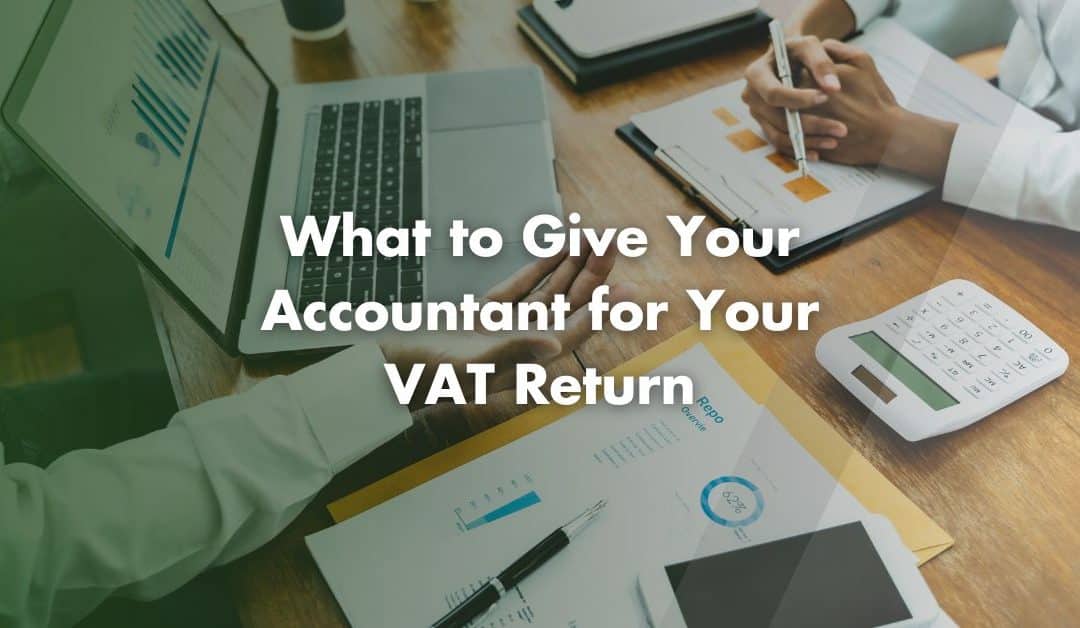Submitting a VAT return can be overwhelming, especially if you are unsure what information to give to your accountant. Getting it right means that your return is accurate and compliant with HMRC regulations.
What to Give Your Accountant for a VAT Return
The documents your accountant needs will depend on whether they handle your bookkeeping or if you manage it yourself.
If You Do Your Own Bookkeeping
If you or a staff member handle bookkeeping, update your accounting software for the VAT quarter. Record all sales and purchase invoices. Your accountant may request additional information to verify transactions.
You should also provide:
- Business bank statements for the VAT period
- Any missing or unclear transactions for verification
If Your Accountant Manages Your Bookkeeping
If your accountant takes care of your bookkeeping, they may already have much of the necessary information. However, you should still provide:
- All sales invoices issued during the VAT period
- All purchase invoices received in the VAT period
- Receipts for expenses paid during the VAT period
- Any credit notes issued or received
- Details of refunds received
- Business bank statements covering the VAT period
- Information about any vehicles purchased, including lease agreements
When Do You Need to Submit a VAT Return
As of April 2024, businesses must register for VAT if taxable turnover exceeds £90,000 in a 12-month period.
Most businesses submit VAT returns every 3 months, known as the “Accounting Period“. Registered businesses must submit a return even if they owe no VAT.
The deadline for submission and payment is usually 1 month and 7 days after the accounting period ends. Use your VAT Online Account to check deadlines and payment status.
Submit VAT returns using accounting software that complies with Making Tax Digital (MTD) regulations. If your business is VAT-registered, use MTD-compatible software unless you qualify for an exemption.
What Should a VAT Return Include?
Your VAT return must include:
- Total sales and purchases
- The VAT amount you owe
- The VAT you can reclaim
- The VAT HMRC owes you (if applicable)
You must declare VAT on the full value of goods or services, even if you mistakenly did not charge VAT to the customer.
Correcting VAT Errors and Penalties for Lateness
Mistakes happen, but you can correct them. You can adjust the error in your next VAT return if the net error is below £10,000. You must report larger errors separately to HMRC.
Late VAT returns or payments can result in penalties:
- Missing the deadline may lead to a penalty or surcharge
- Repeated late submissions can result in additional charges
- If VAT is paid late, penalties increase over time
HMRC uses a points-based penalty system for late submissions. Each late return earns a point and penalties apply once you exceed a threshold. Late payments incur interest from the due date and additional penalties apply if payment is more than 15 or 30 days late.
Contact Us
We are not just accountants; we are Chartered Accountants with one of the most reputable and premium accounting bodies. We are registered and regulated by ACCA; so you can rest assured that you are in good hands. Knowing this, don’t hesitate to get in touch with us if you require assistance: Pi Accountancy | Contact Us
This article is for general informational purposes only and does not constitute legal or financial advice. While we aim to keep our content up to date and accurate, UK tax laws and regulations are subject to change. Please speak to an accountant or tax professional for advice tailored to your individual circumstances. Pi Accountancy accepts no responsibility for any issues arising from reliance on the information provided.

